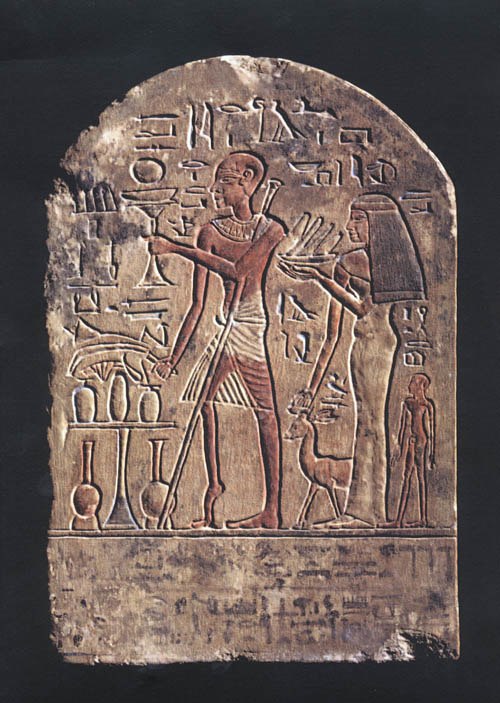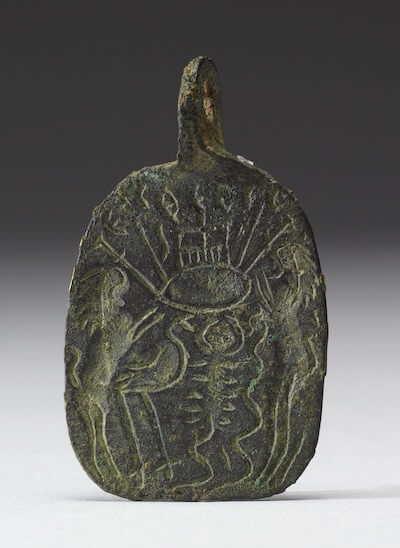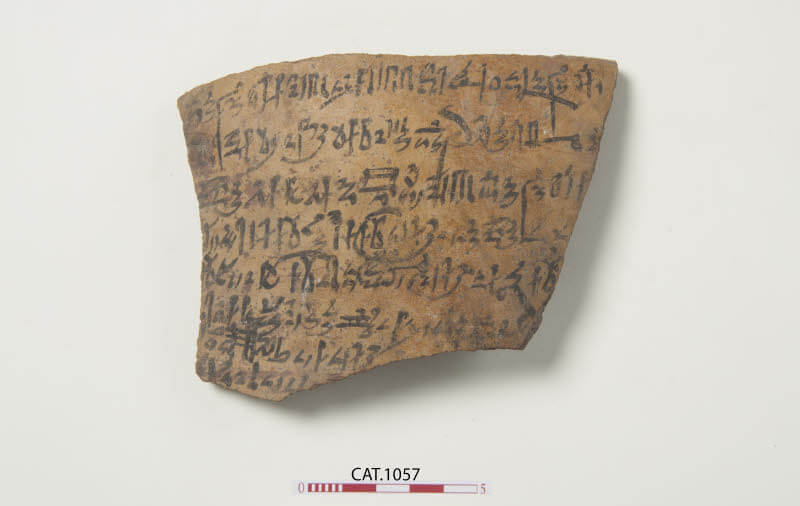
Death Wishes in the Hebrew Bible
December 2022 | Vol. 10.12
By Hanne Løland Levinson
Many of us in the depths of despair have wished for death. What about figures in the Hebrew Bible? “Enough! Now, YHWH, take my life,” Elijah says (1 Kgs 19:4). “My son, my son Absalom! If only I had died instead of you!” David cries (2 Sam 19:1). Rachel is desperate to conceive, and she says to Jacob: “Give me children, or I will die!” (Gen 30:1).
A death-wish text is one in which a literary character utters, in one form or another, a wish to die. The definition does not consider whether the motivation or goal of the wish really is death. The motivation— or better, the rhetorical function—of the death wish needs to be determined case by case, in its literary context. There is no death-wish genre in the Hebrew Bible, but the texts still have some characteristics in common: The death wishes are always formulated in direct speech (as in our examples above). They are generally addressed to someone in the second person and the addressee may be human or divine. (In our examples, Rachel addresses Jacob, Elijah addresses God.) Finally, the death wishes are often formulated as conditional sentences: “If this is the way you are going to treat me, then kill me now.” (Moses to God in Num 11:15).

Landscape with the Prophet Elijah in the Desert, Abraham Bloemaert (1566-1651), Hermitage Museum. Public Domain.
The biblical death wishes range from explicit appeals to die or to be killed: “And now, YHWH, take my life from me” Jonah (4:3) asks of God, to more indirect death wishes in the form of questioning one’s life’s worth. Rebecca, who is not happy with Esau having married Hittite women, says to Isaac, “If Jacob takes a wife from among the Hittite women, such as these, . . . what will my life be to me?” (Gen 27:46).
There are eighteen such death wish texts in the Hebrew Bible (excluding the suicide stories) spread out over eight books, but mostly found in narratives. Nine different characters utter a wish to die: Rebecca, Rachel, the Israelites (as a collective), Moses, David, Elijah, Jeremiah, Jonah, and Job. But they do not all want to die.
Two questions are crucial when we are to consider whether a death wish is “real.” What triggers the death wish in the text and how does the death wish function rhetorically in their literary contexts? I identify four different rhetorical uses of the death wishes: (1) Some death wishes are part of a negotiation strategy, where the petitioner is bargaining with God or with a human being to achieve his or her goal. (2) Other death wishes are a genuine lament and longing for death; or (3) more radically, a wish to eradicate one’s whole existence and never to have been born at all. (4) Finally, death wishes can be an expression of wishful thinking, grumbling, or even mourning, always in a wish that cannot be fulfilled.

Jonah the Prophet by Sargis Babayan, 2010. Photo by the Artist. CC-BY-SA-3.0.
The expression I find most intriguing is when the death wish is part of a bargain with someone of higher formal power: it functions as part of a negotiation strategy. Rachel’s demand in Gen 30 is one example. Rachel bargains with Jacob, her husband (who due to the patriarchal society of ancient Israel would have more formal power then her). Her desire is not to die; rather, she uses the death wish to achieve a change in her life. Her wish is to get a son. Rachel might have felt that she would die if she did not have a son, but death was not the goal. Her negotiation was successful. Rachel eventually bore two sons, though she died giving birth to the second (Gen 30:23; 35:19). Her sons were not an immediate response to her death wish, but the death wish was her first step on the long road to getting what she wanted. For Rachel, uttering a death wish was an act of empowerment. She stood up to the entity in power and the act of defiance led to a successful outcome.
Then again, not everyone who expresses a death wish does so to gain something in life. Some really do want to die. Elijah and Jonah both ask God to take their lives from them. They are prophets who have run away from their land and their missions; dejected, they ask to die. In both cases, the prophets genuinely are seeking death, Elijah because he is exhausted, in despair, and all alone, and Jonah because he is angry and does not share God’s priority of mercy over (what Jonah sees as) justice (Jonah 4:1–4). Elijah says that he has had “enough” (1 Kgs 19:4), and Jonah is angry with God for sending him on a mission to Nineveh and coercing him into going after he tried so hard to get away. They do not want to prophesy anymore, and the only way they see out of it is death—not just any death but death by the hand of God. But neither Elijah nor Jonah dies as they asked; ironically, Elijah never dies.

Lamentation in Memory of Ernst Barlach, Kathe Kollwitz, bronze cast after 1938. Currier Museum of Art, Manchester, NH. Photo by Daderot. CC0 1.0 Universal Public Domain Dedication
Another prophet, Jeremiah, goes a step further: he does not only wish to die but he wishes to eradicate his whole existence and never to have been born. “Why did I come forth from the womb to see misery and sorrow, and spend my days in shame?” he laments (Jer 20:18). Jeremiah’s deep wish is to have avoided being a prophet in the first place and thus see and experience all the misery that was his lot.
Finally, death wishes can serve as expression of wishful thinking. David’s wish to have died in place of his son Absalom is one example. “My son, my son Absalom! If only I had died instead of you!” 2 Sam 19:1). David’s death wish is an expression of deep grief and is part of his mourning. His wish expresses denial, refusal to accept that his son is dead, and bargaining, wanting to take Absalom’s place in death. Denial and bargaining are typical responses to loss, and David mourns the way parents do when they lose a child. David’s wish to take Absalom’s place in death is not a general wish to die but a willingness to give up his life for his son (if it had been possible).
What is the relationship between death wishes and suicide/voluntary death? I suggest scholars are often too quick to read death wishes as expressions of suicidal ideation. In doing so, they overlook the rhetorical functions death wishes have in the narratives. Uttering a wish to die does not (necessarily) mean that the character is suicidal. In most of the examples above, suicide is not a viable option for the characters simply because it would not solve the problems at hand; death is not what the characters actually seek. In the cases where we could argue that the characters are suicidal, as with Jonah and Elijah, it is not a condemnation of suicide that holds them back. Rather, it seems that that the characters are restrained by an understanding that God, being the one who calls prophets, is the only one who can end their commission.
Suicide Corner, Ypres, Emily M. Paterson (1855-1934). Imperial War Museum. © IWM Art.IWM ART 4762
A close study of the death wishes in the Hebrew Bible show that they are always the first move in a conversation (that is, the first part of an adjacency pair) and not a response to another character’s utterance. That said, the death wishes are responses but to situations and experiences, not to other characters’ speech. In uttering their death wishes, the biblical characters strive to gain control of their situations; death wishes are, therefore, rhetorical strategies for survival. They do this when they seek changes in their lives, but they also do this when they seek death. In actively seeking death, the characters try to alter their circumstances. The biblical characters claim agency and autonomy by uttering a death wish because they try to make something happen, whether they negotiate or cry out in despair.
Hanne Løland Levinson is Associate Professor in the Department of Classical and Near Eastern Religions and Cultures at the University of Minnesota. Her book, The Death Wish in the Hebrew Bible: Rhetorical Strategies for Survival, was published in 2021 with Cambridge University Press.
How to cite this article
Levinson, H. L. 2022. “Death Wishes in the Hebrew Bible.” The Ancient Near East Today 10.12. Accessed at: https://anetoday.org/levinson-death-hebrew-bible/.
Want to learn more?


Person, Place, and Object: Ritual Healing in Roman and Late Antique Palestine

Osiris Must Die – Understanding the Practice of “Menacing the Gods” in Ancient Egyptian Magic



Post a comment